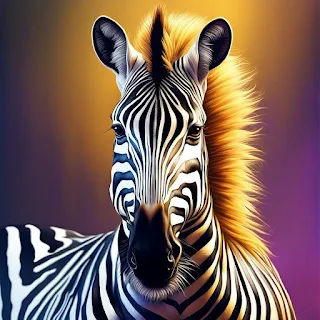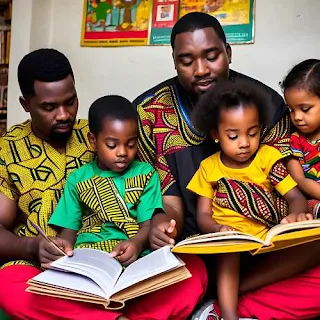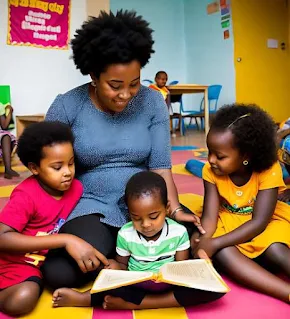Difference Between Folklore and Folktale
Difference between African folklore and an African folktale.
African Folklore is a broad term, while folktale specifically refers to a particular genre of traditional story such as a fable, myth, or fairytale.
Folklore and folktale are both terms used to describe traditional stories and customs passed down through generations in a particular culture or community.
However, there are some differences between these two terms; folklore is a broad term encompassing many different types of traditional knowledge and customs, and folktale specifically refers to a particular genre of traditional story. What is folklore?Folklore is a term that refers to the entire body of knowledge, beliefs, customs, and traditions of a particular culture or community. This can include not only stories and myths but also proverbs, songs, rituals, and other cultural practices. Folklore is a way for a community to express its identity, values, and worldview.
What is a folktale?
Folktale, on the other hand, specifically refers to a type of traditional story that is typically passed down through oral tradition. Folktales often feature mythical or supernatural elements intended to entertain, instruct, or convey a moral lesson.
Examples of folktale genres include fables, fairy tales, legends, and myths.
So, while folklore is a broad term encompassing many different types of traditional knowledge and customs, folktale specifically refers to a particular genre of traditional story.
What is the difference between fables, fairy tales, legends, and myths in African folktales?
Fables, fairy tales, legends, and myths are all types of traditional stories that have been passed down through generations.
While they share some similarities, there are also some key differences between them.
Fables are short stories that usually feature animals as characters and have a moral lesson at the end. The animals are often anthropomorphized, which means they are given human-like qualities, such as the ability to speak and think. Some famous fables include "The Tortoise and the Hare" and "The Ant and the Grasshopper."
Fairy tales are short stories, but they usually feature human characters and involve magic or supernatural elements. They often have a happy ending and may include themes of good versus evil. Some famous fairy tales include "Cinderella," "Snow White," and "Rapunzel."
Legends are stories based on real people or events but have been embellished over time with fictional elements. They often involve heroic deeds or extraordinary events. Examples of legends include the stories of King Arthur and Robin Hood.
Myths are stories that explain the beliefs and customs of a particular culture. They often involve gods and goddesses, supernatural beings, and creation stories. Myths can also be used to explain natural phenomena or historical events. Examples of myths include the stories of Zeus and Odin and creation myths from many cultures.
Therefore, while fables, fairy tales, legends, and myths all share similarities with traditional stories, they differ in terms of the characters involved, the themes they explore, and their purposes.
Here is a beautiful African Folktale Fable about Zara, a Zebra who met a cricket and a magical cloud that grants wishes.
 |
| Zara |
Zara the Zebra with the Golden Mane
Zara, the zebra, loved to bask in the bright African sunlight. She loved to run across the fields, feeling the wind in her mane and the grass beneath her hooves. One day, as she was galloping, she looked up at the sky and saw a cloud floating above her. The cloud was fluffy and white, and it seemed to follow her every move.
Curious, Zara decided to talk to the cloud. She neighed and snorted, hoping to get its attention. Suddenly, she heard a faint chirping sound. Looking around, she saw a tiny cricket sitting on a blade of grass. The cricket was making the sound, trying to catch Zara's attention.
"Excuse me, Miss Zebra," said the cricket, "but that cloud is not ordinary. It is a magical cloud that can grant wishes. If you can catch it, you can ask it for anything you desire."
Zara was thrilled. She had always wished for a beautiful mane like a lion's. She decided to catch the cloud and make her wish come true. She ran as fast as she could, trying to catch the cloud with her hooves, but the cloud kept moving away.
The cricket jumped onto Zara's back and said, "Miss Zebra, let me help you. I know how to catch the cloud."
Zara was surprised. How could a tiny cricket catch a cloud? But she decided to trust the cricket and let it guide her. The cricket directed Zara to a nearby pond, where it told Zara to roll in the mud until she was completely covered.
Zara was confused, but she did as the cricket said. As she rolled in the mud, she felt embarrassed and dirty. But suddenly, she heard a loud thundering sound, and the cloud began to rain down on her. The rain was warm and gentle, washing away all the mud from Zara's body.
When the rain stopped, Zara looked at herself and saw that her mane had transformed into a beautiful golden color, just like a lion's mane. She neighed in joy and thanked the cricket for helping her catch the cloud.
From that day on, Zara became known as the most beautiful zebra on the savanna. Whenever she looked up at the sky, she remembered the magical cloud and the tiny cricket that had helped her make her wish come true.
More links to articles you will find thought-provoking.
-
Dangerous Erupting Volcanoes of Africa

-
Top 20 Largest Countries in Africa

-
What is an African Proverb

-
African Water Spirit Mami Wata

-
Ancestors are Guardian Angels







